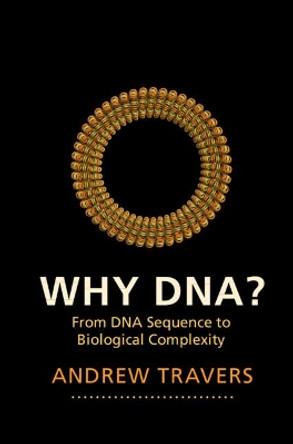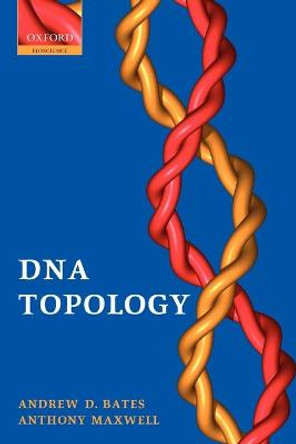Description
Describes how the physical chemistry of the DNA molecule links biological complexity, information flux and evolution to energy.
About the Author
Andrew Travers is an Emeritus Scientist at the Medical Research Council Laboratory of Molecular Biology (MRC LMB) and a Visiting Scientist in the Department of Biochemistry at the University of Cambridge. His research focuses on the use of the genetics and biochemistry of bacteria and Drosophila to study the mechanisms of chromatin folding and unfolding. He started his academic career at the MRC LMB before spending two years as a post-doc in Jim Watson's lab at Harvard University, where he co-discovered the first of the RNA polymerase sigma factors.
Reviews
'The essence of the book is in its title. The DNA structures and topology are described so clearly that the reader perceives these intricacies as pure evolutionary elegance, and understands WHY it is only in its balance of stability and agility that life could have started its journey. This book explains how DNA has become the fascinating prism, made of a fabric of complexity and information, into which the living reflects itself. My opinion is passionate because I have been thinking about the same problems for decades, and here I find many of the answers. Especially: what makes DNA so unique? It is a text that I keep reading over again.' Ernesto Di Mauro, IBPM, National Research Council, Rome
'In What Is Life? Schroedinger conjectured that, in animate matter, order is derived from order, foreshadowing the discovery of DNA structure. Why DNA? is about this molecule and its dual information content - in linear genetic code and in thermodynamics of three-dimensional DNA structures. It addresses how DNA's intrinsic order led to complex, highly ordered living organisms, in a world that strives towards disorder. Why would DNA supplant RNA in carrying hereditary information during biological evolution? Why did multicellular organisms emerge, since natural selection favours the fittest, such as simple bacteria? What is complexity, and what has it to do with Bayesian logic? How do complexity, information and energy interrelate? This is a succinct discourse on Schroedinger's question, expanding from molecular interactions and genome cooperation to ecological systems and societal evolution. A must-read for biology scholars, and anyone interested in life's origins, biological evolution and the interface of biology and physics.' Georgi Muskhelishvili, Agricultural University of Georgia, Tbilisi
Book Information
ISBN 9781107697522
Author Andrew Travers
Format Paperback
Page Count 222
Imprint Cambridge University Press
Publisher Cambridge University Press
Weight(grams) 400g
Dimensions(mm) 228mm * 152mm * 11mm






